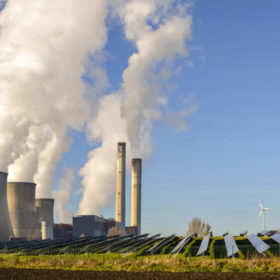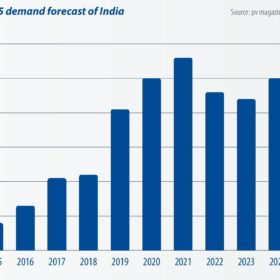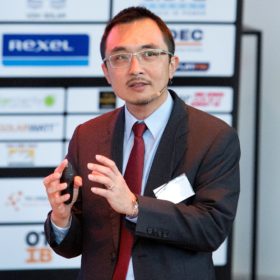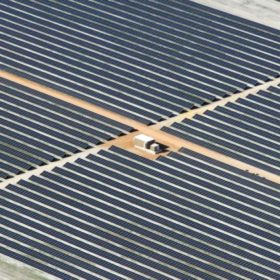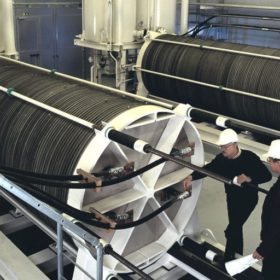Will Taiwan meet its 20 GW solar goal by 2025?
By 2025, Taiwan aims to reach a cumulative installed solar PV capacity of 20 GW. However, by mid-2018, just 11.2% of this goal had been met. TrendForce analyst, Rhea Tsao, examines the situation and discusses what needs to be done to reach the target.
Degradation control tests for solar PV modules
Module degradation tests are essential not only for effective plant operations, but also to ensure an optimum ROI. However, fixed laboratories, where such tests are usually carried out, involve transportation issues, while it is not always economically feasible to send in mobile laboratories. So how can degradation in these instances be measured? Leonardo Enrique Pérez Abreu, Technical Manager of the Testing & Optimization department at Enertis discusses this issue.
World Overshoot Day comes early this year
World Overshoot Day marks the day the world has used up its annual budget of the resources it could have sustainably consumed. Despite efforts in relevant sectors, the date is creeping forward every year. Twenty years ago, it was in late September.
India’s trade war will have global repercussions
India is currently the second largest market in the world for PV module demand. With China’s domestic demand frozen since the 31/5 notification, the country’s total module demand in 2018 will likely only achieve 32-34 GW. This will allow India, which may surpass 10 GW in annual demand, to reach 13% of global PV demand this year. As a result, the future of India’s trade war has become an influential factor in the global PV industry.
Why can’t LID effects be completely removed in PERC cells?
Jay Lin, CEO of PVGuider discusses why the effects of light induced degradation (LID) in PERC cells cannot be completely eliminated. To explain the difficulty, we first need to understand the LID behavior of the cells, he says.
Setting the stage for solar + storage
As more states adopt ambitious renewable power and storage targets, hopes increase for continued market opportunities beyond the ITC. In the mid-term, the overall market opportunity is clear. At IHS Markit, we project 73 GW of solar PV systems will be installed in the United States from 2018 to 2022.
The China effect: Decreasing PV utilization rates, serious oversupply and future strategies
Independent energy analyst, Corinne Lin discusses the fallout of China’s recent solar PV policy decision, including decreasing utilization rates and serious oversupply; and a focus on equipment upgrades, particularly for PERC, SE, half cut and bifiacial technologies. The industry will bounce back in 2019, she concludes.
The impact of energy storage, pumped heat storage on global energy
With the percentage of renewables in the global energy mix increasing, and global energy demand projected to increase by 30% over the next two decades, energy storage is more important now than ever. But what are the main technologies for energy storage, and how will these technologies affect global energy? Gabriel Hurtado González, Energy Solutions Manager at Mitie, and Sasaenia Paul Oluwabunmi, Operations Officer at the OPEC Fund for International Development answer this pertinent question.
“We helped large-scale solar be commercially viable,” says departing Australian Renewable Energy Agency boss
The booming large scale and rooftop PV market in 2018 is providing reasons to be optimistic about the future of solar under the Australian sun. Reflecting on his six-year tenure as CEO at ARENA ahead of his departure in August, Ivor Frischknecht points to the role the agency played in bringing down the costs of large scale solar as ARENA’s greatest achievement.
Hydrogen, don’t give up!
For decades, hydrogen has been sold to us as the energy carrier of the future. You might not want to hear it anymore, because the future never seems to start. But times will change as recent developments in Germany indicate, writes Berlin-based renewable energy consultant, Stephan Franz.


